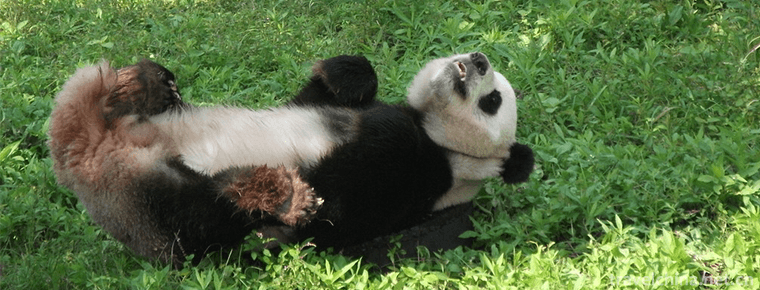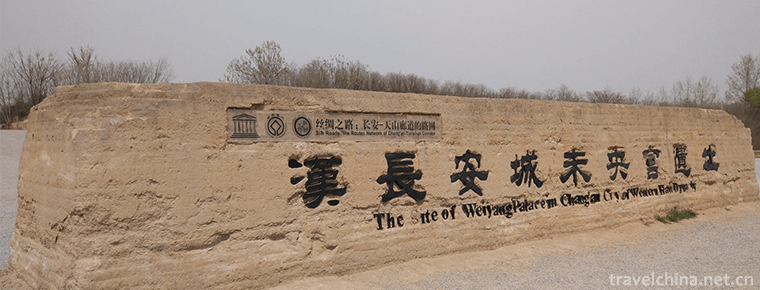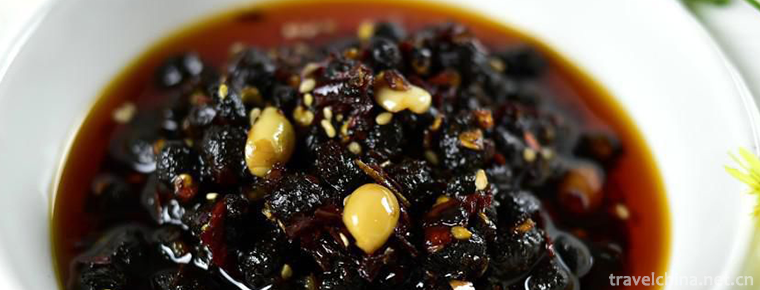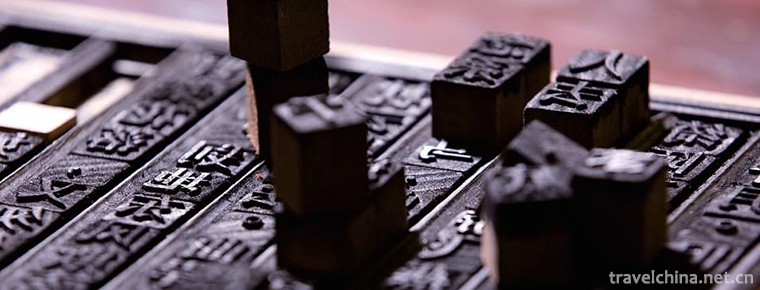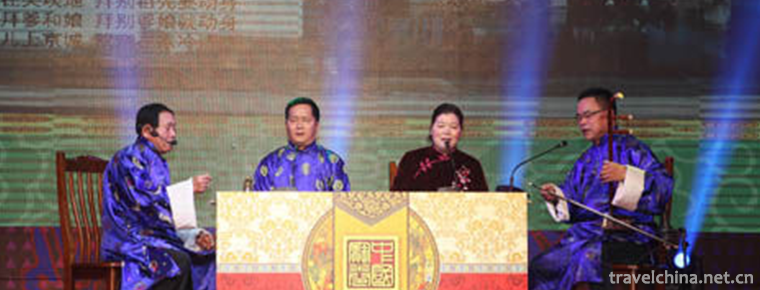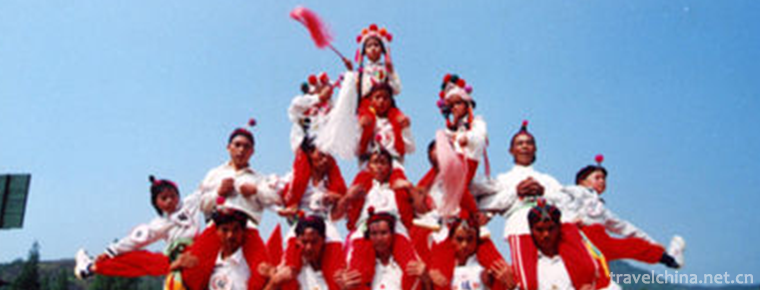Huai tune Huai Diao
Huai tune Huai Diao
Huai Diao, also known as Huai Diao, also known as Zhanghe Old Diao, is one of the national intangible cultural heritage.
Huai Diao is a rare opera originating in Zhangde Prefecture, and it is one of the origins of Bangzi Opera in the middle and lower reaches of the Yellow River. It can even be called the ancestor of Bangzi Opera in this region. According to Anyang County Cultural Records, as early as the Sui and Tang Dynasties, Huai Diao began to be popular on both sides of the Yellow River. At that time, Huai Diao was based on chord tune, and its artistic style had initially taken shape. Huai Diao shows bold and bold movements, unique singing voice, elevated tone, simple and rough, fast rhythm, stretching and bold, vigorous and powerful, showing strong regional characteristics.
In 2011, Huai Tiao was approved by the State Council of the People's Republic of China to be included in the third batch of national intangible cultural heritage lists, the heritage number IV-147.
historical origin
Huai Diao belongs to a local opera of Bangzi Tune. According to the New Records of Henan Province, Henan Bangzi is a slightly flexible opera in the area of Qinyang, which is called "Huai Tiao", also known as "Huai Tiao", also known as "Zhanghe Old Tune". It is a popular and influential opera in northern Henan and southern Hebei. The popular areas include the old Zhizhangde (Anyang) Mansion, Weihui (Wei Hui) Mansion, Shunde (Xingtai) Mansion, Guangping (Yongnian) Mansion and Daming Mansion. The so-called "Five Governments Huai Diao". According to Anyang County Cultural Records, as early as the Sui and Tang Dynasties, Huai Diao began to be popular on both sides of the Yellow River. At that time, Huai Diao was based on chord tune, and its artistic style had initially formed. In the following years, Huai Diao was intermittent, rising and declining, neither breakthrough development nor disappearance with the changes of the times.
During the reign of Kangxi in Qing Dynasty, Huai Diao began to develop by leaps and bounds after thousands of years of cultural immersion. At this time, HuaiDiao has developed to the south of the Yangtze River and Huaihe River, and to the north of Beijing and Tianjin. HuaiDiao is not only popular among the people, but also has begun to enter the official prefectures. Among them, the official prefectures and the army in Henan and Hebei have sung HuaiDiao more frequently. Besides the official troupes, private HuaiDiao troupes are also more common. For example, Head Soap Class (Criminal Police), Second Soap Class (Internal Service) and Xiying Class (Garrison) in Changde Prefecture all have Huaihua shift, which is called "three shifts". At that time, there were a number of famous actors who had great influence in society and had great skills, such as the famous "Big Head King", the famous Danjiao Tianbao and the famous young student Yang Fengshan. The popularity of the masses has a smooth line: "Reading Military Books at Night" and "Big Head King" are so popular that they have "Erzhuang" for days. They have given up their father and their mother, and they can't give up Tianbao's "Anti-Western Tang Dynasty". Later, famous actors appeared successively, such as Ma Baisuo, Lianghe Tu, Guo Desheng and Lao Suicheng. Folk HuaiTiao, such as Duli, Xincun, Beiguo and Donggang in Linzhou, all have their own HuaiTiao classes.
During the reign of Qingdaoguang and Xianfeng, Hebei Bangzi and other voices appeared, and the performance market in the North was very active. Zhongzhou's small and high-profile development is extremely rapid. Various local operas are blooming everywhere, and HuaiDiao began to decline.
Nearly half a century after Tongzhi reign of the Qing Dynasty, Huai tune tone disappeared in a large area including northern Jiangsu, northern Anhui and southeastern Shanxi with the flow of artists and class clubs and the change of flags.
During the Republic of China, Huai Diao gradually declined.
During the Anti-Japanese War, only a professional theatre troupe led by Qin Yongxian performed on both sides of the Zhanghe River.
After the founding of New China, Anyang, Tangyin, Neihuang, Hebi and other places have established HuaiDiao professional theatre troupe and amateur theatre troupe, and increased the number of actresses. Later, most of the troupes disintegrated or changed to Henan Opera.
In 1957, with the approval of Henan Cultural Bureau, Huai Diao, a rare opera, was restored. Based on two semi-professional troupes, Dongshui and Shifengzhuang, an Anyang Huai Diao troupe was formed with 65 performers and staff.
In 1979, with the appeal of some old artists, Anyang Huai Diao Opera Troupe became independent again, and now it has become the only professional performing troupe in the country.
Representative repertoire
As of June 2015, there are more than 300 traditional operas in Huai Diao. Most of them are historical operas focusing on extolling loyalty and eliminating adultery and protecting the family and defending the country. Yangjia Jiang and Pan Yang Song are classical operas in Huai Diao. There are more than 40 modern operas frequently performed, such as Wufengling, Lao Yangshan, Liang Langshan, Lao Bao Shuo Medium and Lubu in Three Wars.
Distribution area
Huaihe River Diversion is very popular in northern Henan and southern Hebei, mainly distributed in Fuyang, Funan, Shouxian, Huoqiu, Bengbu and other areas on both sides of the Huaihe River.
Inheritance and protection
Inheritance value
HuaiDiao, with its strong storytelling, rich language and beautiful musicality, shows important cultural value. It also provides valuable materials for the study of Anyang County's history, culture, folk customs and folk customs.
Inheritance status
HuaiDiao has a long history, distinct personality and rich heritage. However, in recent years, the living condition has deteriorated, the market has shrunk, the ranks are aging, and there are few successors. Only one professional performing group in Anyang County is left, which needs urgent support and protection.
Inheriting characters
Sun International, male, Han nationality, born in June 1956, is the representative successor of the fourth batch of national intangible cultural heritage projects in HuaiDiao, Anyang County, Henan Province.
protective measures
In order to protect HuaiDiao, the Anyang County Committee and the county government set up special support funds to develop and strengthen the HuaiDiao Opera Troupe through the development of opera competitions, regular performances and other activities, so as to return traditional culture to the masses and make the protection of intangible cultural heritage a conscious action of everyone. They also strive to introduce talents for the troupe, guide the troupe to go out and provide corresponding subsidies, strive to win the audience with the performance quality, make breakthroughs in artistic attraction, appeal and influence, and form a cultural brand.
In September 2010, the Ministry of Culture and Henan Province came to Anyang HuaiDiao Opera Troupe to record the image data, leaving a precious image record for HuaiDiao Opera.
In 2013, when Henan Province recorded rare operas in Anyang County, HuaiDiao Opera Troupe performed Yinjiao Xiashan, Li Gang Dachao and Wu Fengling, which left precious video records for HuaiDiao.
social influence
Important performance
On November 1, 2011, Huai Opera Famous Famous Duan Concert performed passionately in Shanghai Grand Theatre.
In 2013, HuaiDiao Opera Troupe represented Henan Province in the Second China (Nanchong) Jialingjiang Lantern Opera and Local Drama Art Festival.
In 2015, Anyang HuaiDiao Opera Troupe participated in the exhibition of folk culture in the Spring Festival.
Honorary commendation
In November 2004, HuaiDiao Opera Troupe participated in the "First Folk Traditional Excellent Opera Performance in Henan Province" and won the Gold Prize for Performance.
In 2015, Anyang HuaiDiao Opera Troupe participated in the New Spring Folk Culture Exhibition and won the Best Performance Award for the New Spring Folk Literature and Art Festival.
In 2015, Sun International and his colleagues won an excellent award for performing the Huai Diao classic drama "Receiving Wu and Han Dynasty" at the "Second China (Nanchong) Jialingjiang Lantern Opera and Local Drama Art Festival".

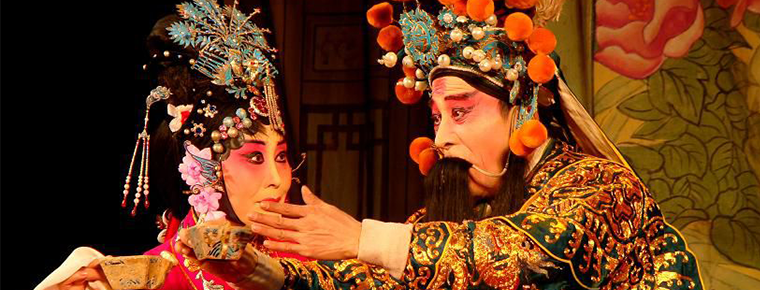
-
Shanghai Wildlife Park
Shanghai Wildlife Park, located at 178 Nanliu Highway, Pudong New Area, Shanghai, is the first National Wildlife Park in China built by the Shanghai Municipal People's Government and the State Forestr.
Views: 123 Time 2018-12-19 -
Weiyang Palace Site in Changan City Han Dynasty
The site of Weiyang Palace in Chang'an City of Han Dynasty, located in the southwestern part of the site of Weiyang District, Xi'an City, Shaanxi Province, was built in the seventh year of Han Gaozu (.
Views: 124 Time 2019-01-13 -
Brewing Techniques of Douchi
Douchi brewing has a long history in China, and the records of Douchi production appeared in Qimin Yaoshu during the Northern and Southern Dynasties. Douchi is a kind of healthy food.
Views: 149 Time 2019-04-28 -
Wood movable type printing technology
Dongyuan Village is located in the southwest of Ruian City, Zhejiang Province. According to the local "Wang's genealogy of Taiyuan County", in the early Yuan Dynasty, Wang Famao, a hermit in.
Views: 114 Time 2019-06-06 -
Shaoxing Xuanjuan
Shaoxing Xuanjuan is a traditional rap art with religious color, which is mainly used to worship gods and pray for blessings. Since Tang Dynasty, it has developed into folk art in Qing Dynasty. The So.
Views: 184 Time 2019-06-14 -
Ying Luohan
Yingluohan is a form of traditional folk entertainment which integrates martial arts and folklore in the traditional festival activities in Jinyun County, Zhejiang Province. This kind of activity also.
Views: 131 Time 2019-07-14 -
Longhua Town
The synonym Longhua ancient town generally refers to Longhua town.
Views: 148 Time 2020-10-16 -
Mianzhu Hanwang earthquake site
Mianzhu Hanwang earthquake site (Park) is composed of three areas: Dongqi factory area, Dongqi dormitory area and Hanwang town area. It mainly focuses on four themes: digital display platform.
Views: 211 Time 2020-11-05 -
Langmu Temple
Langmusi town is a small town under the jurisdiction of Luqu County, Gannan Tibetan Autonomous Prefecture, Gansu Province, and Ruoergai County, Aba Tibetan and Qiang Autonomous Prefecture.
Views: 144 Time 2020-11-07 -
Natural disasters in Mianyang
Earthquake: Mianyang City is located in the western mountain area, namely Pingwu, Beichuan and Anxian mountains, and the Northwest Mountainous Area of Jiangyou, which is one of the earthquake prone areas in Sichuan Province. .
Views: 126 Time 2020-12-14 -
Meishan economy
In 2019, the gross domestic product (GDP) will reach 138.02 billion yuan, an increase of 7.5%. Among them, the added value of the primary industry was 19.916 billion yuan, an increase of 3.0%; the added value of the secondary industry was 52.713 billion yuan,.
Views: 341 Time 2020-12-18 -
Dazhou City honor
On June 9, 2020, Dazhou was awarded the advanced municipal Party committee and government of Sichuan Province in promoting the development of service industry..
Views: 232 Time 2020-12-20
